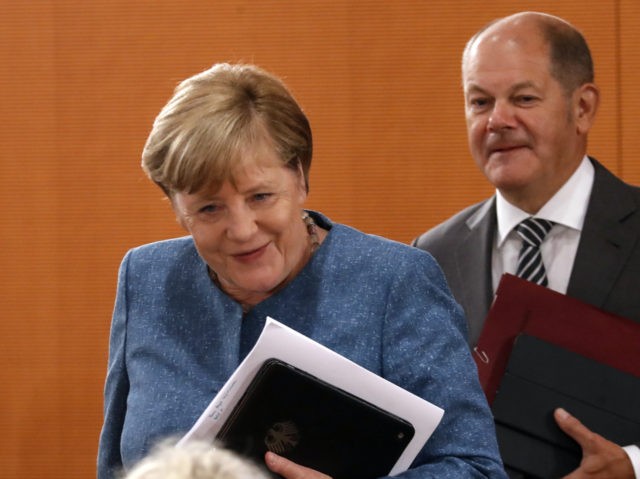The head of a major leftist party in Germany has called for former Chancellor Angela Merkel to return to international politics in order to help negotiate a solution to the Russia-Ukraine crisis.
Dietmar Bartsch, who heads up Germany’s left-wing Die Linke party, has called for Angela Merkel to return to the international stage in order to help mediate between the east and west over the ongoing crisis in Ukraine.
While Bartsch also made sure to applaud the initiative of the current Chancellor, Olaf Scholz, on the issue — with the SPD politician having recently visited both Moscow and Kyiv — the suggestion that his predecessor should return to the forefront of international debate has not gone down well with those currently in Germany’s nascent coalition government.
According to a report by Die Welt, Bartsch called on Merkel to be brought back as a key mediator for the west regarding the conflict, citing her connections with both sides of the conflict, as well as her prior experience at the negotiating table.
“She has the authority on both parties to the conflict that is necessary to calm the situation,” Bartsch is reported to have told a number of German publications.
“I would wish that the woman who until a few weeks ago was chancellor, who has excellent connections to Vladimir Putin, who speaks the language, would perhaps be appointed to an intermediary role by Olaf Scholz and Emmanuel Macron,” the Die Linke leader also reportedly said in a separate interview.
The suggestion has gone down like a lead balloon with some in Scholz’s so-called “traffic-light” coalition government.
The chairwoman of the defence committee, Marie-Agnes Strack-Zimmermann, spoke against the measure, saying that the ex-Chancellor should not get involved in the current crisis.
“When you leave such an important position, you should curl up and do nothing,” Strack-Zimmermann reportedly said.
How useful having a German — whether Scholz, Merkel, or another — at the forefront of talks with Russia may be of limited utility for other European nations, however, given Germany’s perceived proximity to Russia on questions of energy. The country has pushed through, against the advice of other concerned nations, the Nordstrom 2 gas pipeline.
Concerns abound that mainlining even more Russian gas into central and western Europe will only serve to intensify the continent’s dependence on Moscow, and thereafter grow Russia’s power and influence. The degree to which Germany and Russia are aligned on this issue was sharply underlined on Tuesday when chancellor Scholz spoke to press after a meeting with Putin in Moscow, where he made comments agreeing with Russia’s own demands: that Ukraine should not join NATO.
Further enhancing the impression of the German political class having been captured by Russian interests surrounding energy, earlier this month previous German Chancellor Gerhard Schröder — who was the German leader to first approve the Nordstrom 2 pipeline project — was nominated to join the board of a Russian state-owned gas company. He is already a board chairman for another Russian state gas company and is a Nordstream president.
Bartsch’s suggestion that Angela Merkel should re-enter the political sphere comes at a time when Scholz is under extreme pressure from critics.
The pro-forced vax chancellor has experienced a collapse in public support since taking office, with only 22 per cent of Germans believing he has done a good job as Chancellor so far, compared to 63 per cent who thought he would do well in the position according to a poll administered before he took office.
Scholz has also been the subject of much mockery online, with the hashtag #WoIstScholz, or “Where is Scholz” trending on German social media over the left-leaning statesman’s perceived lack of leadership.
Since this criticism became widespread online, Scholz has had his own official state social media account set up on Twitter, with the Chancellor also conducting an English interview with CNN as part of an apparent publicity blitz.
The official Twitter account marks a departure from his predecessor Merkel, who does not have an account on the platform, opting instead to reportedly rely on her colleagues to circulate statements for her.

COMMENTS
Please let us know if you're having issues with commenting.